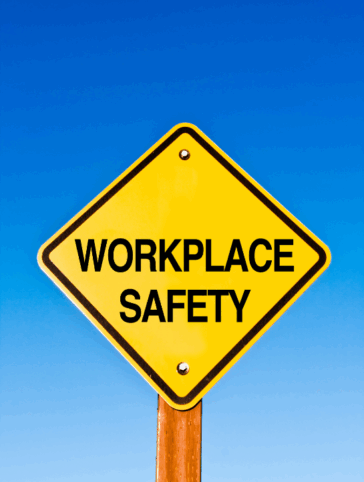Workplace stress may be putting your company at risk. Although some stress is normal, high levels of stress can lead to physical and mental health problems. This can result in increased turnover, reduced productivity, and more workers’ compensation claims. Tackle the problem head on with stress management strategies.
Workplace Stress Is Through the Roof
Stress has reached an all-time high. In the 2022 State of the Global Workplace survey from Gallup, 44% of employees said they had experienced a lot of stress the previous day. That’s the highest rate in the survey’s history. Although stress levels were high globally, women in Canada and the U.S. had some of the highest stress levels.
Stress can stem from many issues, but work is a major contributor. In the 2022 Work and Well-being Survey from the American Psychological Association (APA), 18% of employees said their workplace is somewhat or very toxic.
How Workplace Stress Hurts Your Workers and Your Company
Extreme stress is bad for business.
- When stress levels rise, engagement and productivity may drop. Gallup says employee engagement had been rising, but the pandemic put an end to this trend. Only 21% of employees said they are engaged at work.
- Chronic stress can negatively impact a worker’s physical and mental health. Yale Medicine says chronic stress can cause aches and pains, insomnia, weakness, and unfocused thinking, among other symptoms.
- High stress levels can cause employees to quit or decline job offers. In the APA’s 2022 Work and Well-being Survey, 81% of survey respondents said an employer’s support for mental health would be an important consideration when they look for work in the future.
When you put all this together, the picture is grim. If you have workers who are exhausted from a lack of sleep and who are not thinking clearly due to stress, injuries are more likely. Workers can get in motor vehicle accidents, cut themselves on equipment, or trip and fall. If this happens while they’re on the job, a workers’ compensation claim can follow. Even barring a serious injury, tired and unfocused workers are unlikely to accomplish as much as energized workers and may make mistakes that hurt the company’s bottom line. If they reach their breaking point, they may simply quit.
Stress Management Strategies
Stress management can help your company. To make a difference, you may need a multi-pronged approach that includes benefits, policies, and culture.
Some of your options include:
- Giving workers flexibility and time off. Many workers are juggling family and work obligations. A little flexibility can go a long way to help them balance both. Workers also need time off to recharge. In the APA’s 2022 Work and Well-being Survey, when asked what type of mental health support they want, 41% of workers cited flexible hours, 34% a workplace culture that respects time off, 33% the ability to work remotely, and 31% a four-day workweek.
- Detoxing your workplace. If drama, bullying, and hostility are common, you may have a toxic workplace. Work to identify and improve any sources of toxicity. Are certain individuals known for yelling at and insulting others? Are workers facing unreasonable demands? Do employees feel under-appreciated?
- Fostering a positive environment. Even if your workplace is not toxic, it may not be as positive as it could be. Foster a supportive and collaborative environment from the top down by recognizing employee achievements, giving employees the tools they need to succeed, and encouraging open communication.
- Providing mental health perks. Do your employees need guidance on how to beat insomnia and improve mindfulness? An app could help. Employee Benefit News lists eight low-cost apps (including Calm and Headspace) that employers can offer as workplace perks to help with mental health,.
- Offering an Employee Assistance Program. If you’re serious about stress management, consider offering an Employee Assistance Program (EAP). EAPs provide various services to help employees navigate work and personal problems.
Stress management strategies can help companies and their workers thrive, but you still need robust insurance coverage. Tangram offers customized insurance programs to help employers manage their risks. Contact us.




